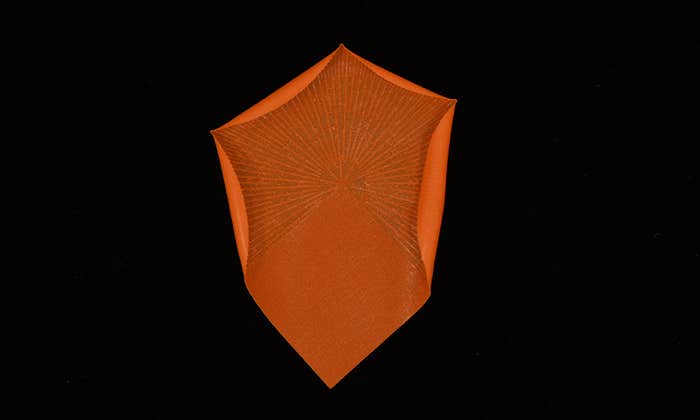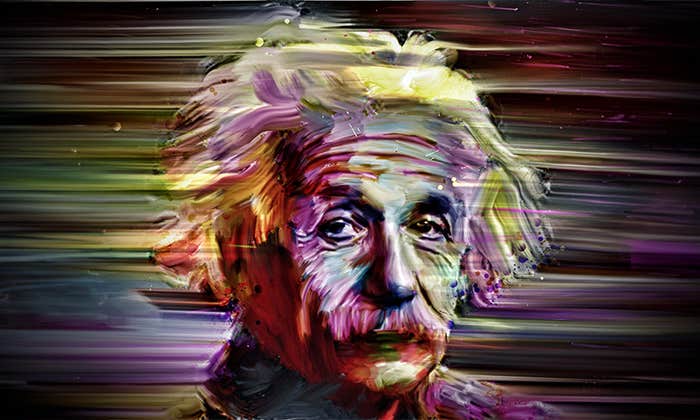It’s week three of COVID lockdown here in Germany. Schools are closed, my institute is closed, my husband’s workplace is also closed. Half of the shops in the city are closed. Everything, it seems, has been canceled. Playgrounds are deserted. The police are cruising the streets to prevent people from gathering outside. It’s eerie.
Work continues, but it’s different. Meetings are now teleconferences. Skype, Zoom, WebEx, Google Hangout—we are getting used to it. I am a theoretical physicist at a research institute; I don’t do lab work and I don’t teach, so for me remote communication is mostly an inconvenience, not a real problem. But the pandemic caught me in the midst of organizing a workshop. We had to cancel reservations, apologize to our sponsors, inform participants their travel plans are now nil, and postpone the meeting to a so-far unknown future date. The same has happened, for all I can tell, with all other workshops and conferences in my field, up until the summer, at least.
My biggest headache, however, has so far been that the library access on my laptop didn’t work, yet I couldn’t drop off the computer with IT to fix the problem—no one’s in their office. I eventually managed to fix it myself.
An unforeseen side-effect of our self-isolation has been that I produced a music video.
As you may guess, working from home with the kids around does not aid my productivity. In that, I am in the same position as many of my colleagues who have families to attend to. References to Issac Newton inventing calculus during the plague lockdown just have us roll our eyes. Newton was single and childless; he didn’t have to feed, wash, educate, and entertain offspring next to writing a scientific masterpiece. I’ll be happy if my productivity does not decrease.
While we try to continue life as normally as possible, our biggest worries are with the kid’s grandparents, neither of which live nearby. My younger brother, who is an engineer, made a breathing mask for my mom. And I? I feel useless. While doctors and nurses are out there fighting for lives, I sit at home wishing them good luck. As an atheist, I can’t even say I pray for them.
Physics is all about modeling natural phenomena. Unsurprisingly, many of my colleagues, including me, have lately become interested in epidemic modeling. It’s not so far off our occupational interests, and, lo and behold, the pre-print server now offers some papers with condensed-matter analogies to human society. Maybe I lack imagination, but to me it seems like a hammer looking for a nail; one doesn’t become an expert in a new discipline overnight. And then there was the astrophysicist who recently made headlines with getting magnets stuck up his nose while attempting to invent a device that would beep if you touched your face. Yes, it’s funny. But then, he was just trying to help.
I promise I have no intention to propose a quantum-model for disease spread, but like everyone else I have been wondering if I can make myself somewhat more useful in these difficult times. Problem is, I normally spend my days trying to understand the expansion of the universe, black holes, dark matter, or the measurement problem in quantum mechanics. “Useful” is something different. I don’t even have magnets to stick up my nose. I like to think that my research area will one day become relevant, but that day may be 100 or 1,000 years in the future. It’s not going to prevent suffering any time soon.
After some soul-searching, I decided the one thing I can do that isn’t entirely useless is write and talk. People sit at home, many anxious and worried about loved ones, and a lot of their normal modes of distraction are not available. In that situation, writing, audio, and video—anything that does not require personal contact—can be a relief. So, I blog and I feed my YouTube channel with little physics lectures, and if it makes any one’s day a little better, a little more interesting, a little more enjoyable—then I’ll have succeeded.
An unforeseen side-effect of our self-isolation has been that I produced a music video with friend and colleague Tim Palmer. Like most of us, he now works from home—near Oxford, U.K.—and as we were sorting out the postponement of our workshop, I saw he has guitars in the back of his room. Well, one thing led to another, and we ended up making a cover version of R.E.M.’s “It’s the End of the World As We Know It,” which you can now enjoy on YouTube. I hope it makes your day a little better.
Sabine Hossenfelder is a theoretical physicist at the Munich Center for Mathematical Philosophy, in Germany, focusing on modifications of general relativity, phenomenological quantum gravity, and the foundations of quantum mechanics. She is the creative director of the YouTube channel “Science without the gobbledygook” where she talks about recent scientific developments and debunks hype. Her latest book is Existential Physics: A Scientist’s Guide to Life’s Biggest Questions. Follow her on X (formerly known as Twitter) @skdh.


























